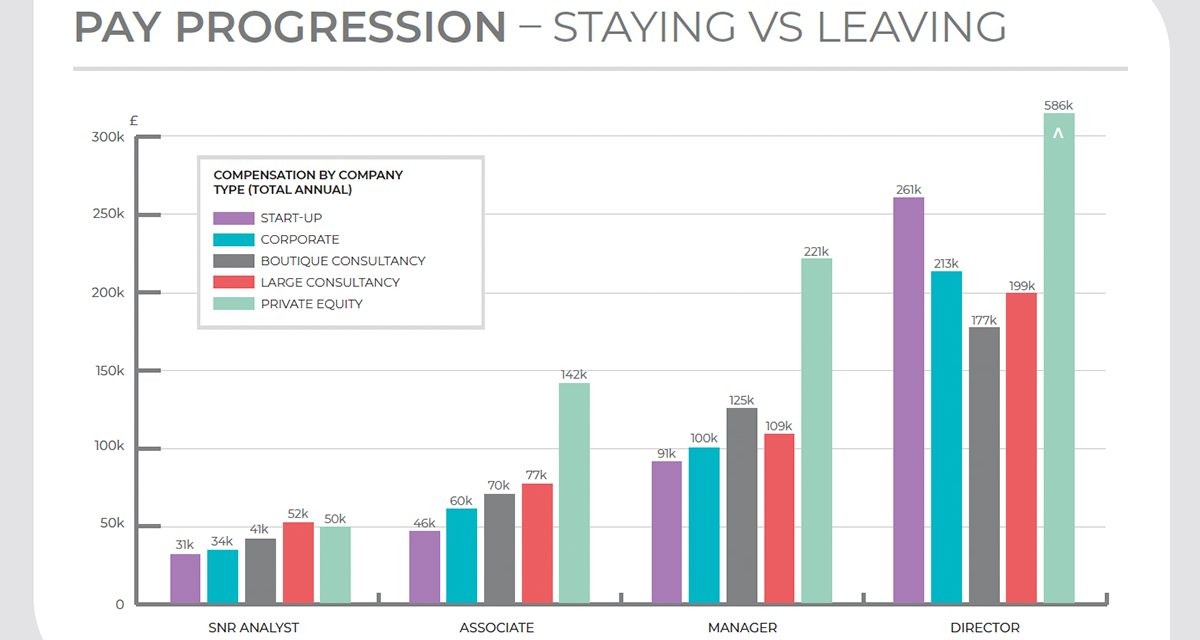
There are many types available in legal management consulting. There are large law firms that specialize only in strategy and operations. There are also small regional players with medium-sized to large sizes and family owned businesses. These companies may have a wide range of geographical presences, decentralized networks or vertical or lateral presences. Or they can be focused on a single area. They hire different types of professionals, such as lawyers, entry level professionals and law students.
Lawyers get higher salaries that legal consultants
Lawyers have received higher salaries in recent years than lawyers and legal consultants. The compensation scale is bimodal. Law graduates in one group earn $45,000 to $65,000 while those in the other receive $125,000 per year. This gap was further widened in 2007 by the six-figure salaries of lawyers at Big Law firms, while those in smaller companies took home much less.
This is because supply and demand have driven the compensation structure in big law firms. During the last decade, the average hourly rate for partners at major law firms has increased by around 20%, while the average hourly wage has increased by less than 1% per year. This has led to a rise in the average hourly rate for partners at major law firms of around 20%, while the average hourly wage has increased by less than 1% per year.
Lawyers have similar education levels
Both the candidate and the employer must be educated when looking for a legal consulting job. While lawyers tend to be more educated then legal consultants in general, both occupations require similar levels of education. A lawyer and a legal consultant have almost the same average JD and Master’s degrees.

A typical legal operation consultant works with in-house departments to build their technological infrastructure. This includes creating a software system for processing outside-counsel bills. They also collect and analyze data concerning billing and collections.
Lawyers conduct legal research
Legal research can be conducted by lawyers for many reasons. Lawyers may prepare briefs for clients or try to reduce client risk. They want to maximize their billable hour. These requirements are met and their legal workflows improved by legal research. Additionally, they can also get new clients.
It can be hard to do legal research. However, knowing how it works can help make the process easier. Solid research skills are crucial to putting together a compelling argument. Lawyers should be educated about legal research and all the steps involved.
Lawyers manage case life cycles
In an industry that is competitive, lawyers must make sure they understand the life cycle of clients. This involves understanding and adding value at each stage of a client’s lifecycle. It may seem overwhelming, but this is crucial for lawyers to provide a great client experience.
Managing the life cycle of a legal case involves keeping track of a wide range of data. This includes everything from client invoices and budgets to the type of legal work that was done. A legal matter management system helps legal firms keep track of these details and more. Financial reporting is another benefit to the use of a legal matter management system. This allows attorneys to see how their business is doing.

Management of projects is best left to lawyers
Project management is becoming a more common role for lawyers in the legal sector. It has many benefits for the firm and its clients, including increased efficiency and cost control. It allows law firms to handle more traditional issues such as overtime, long hours and fatigue due to excessive workload. It can also improve client relations.
Many types of legal project management software are available. These software can be used to help lawyers manage their workflows. These tools can keep track of important project components and deadlines. They can also keep track of each team member's workload and availability, which is crucial to law firms.
FAQ
How can I select a consultant?
There are three major factors you should consider:
-
Experience - How much experience does this consultant have? Is she an expert, beginner, intermediate or advanced consultant? Do her qualifications and knowledge show on her resume?
-
Education - What did this person learn during school? Did he/she study any relevant courses after graduating from high school? Were there any evidences of this learning in his/her writing?
-
Personality: Do you like this person or not? Would you want this person to work for you?
-
These questions help to decide if the consultant suits our needs. If you don't have clear answers, it may be worth meeting with the candidate for an interview.
How can I find clients for my consulting business?
Finding a passion area is the first step. It could be anything from social media to public relations, but there must be something you feel strongly about. If not, you may have to start small by finding a niche market such as web design. Once you find the right niche, it is important to know what makes it tick. What problems can it solve? Why should people use it? And most importantly, how can you help them?
It is also possible to approach businesses directly.
If all else fails why not offer your services to free events like conferences and networking evenings? This will allow you to meet potential customers without the need for advertising and also allows you to showcase your skills.
How can I become an expert consultant?
Find an area that you are passionate about. You must then build relationships. You need to know what clients want and how they operate. You must also deliver results.
Although you don't have the ability to do everything perfectly, you must be better than anyone else. You must also have passion for your work. It doesn't suffice to say, "I will be a consultant." You must believe in yourself.
How much does it cost to hire a consultant?
It is not easy to determine how much it will cost to hire a consultant. These include:
-
Project size
-
Time frame
-
Scope of employment
-
Fees
-
Deliverables
-
Other factors to consider include location, experience, and other considerations.
Are consulting incomes subject to tax?
Yes, tax will be payable on any consultancy profits. The amount of your earnings per year will determine the tax payable.
If you are self employed, you can claim expenses in addition to your salary. This includes rent and childcare.
But you won't be able to deduct interest payments on loans, vehicle depreciation, or the cost of equipment.
You cannot claim back less than PS10,000 in a given year.
But even if you're earning more than this threshold, you might still be taxed depending on whether you're classed as a contractor or employee.
Pay as you Earn (PAYE) is the most common method of taxing employees. Contractors pay VAT.
How much do consultants earn?
Some consultants make over $100k per year. However, most consultants only make $25-$50k. A consultant's average salary is $39,000 This applies to both hourly and salaried consultants.
Salary depends on experience, location, industry, type of contract (contractor vs. employee), and whether the consultant has his/her own office or works remotely.
Statistics
- My 10 years of experience and 6-step program have helped over 20 clients boost their sales by an average of 33% in 6 months. (consultingsuccess.com)
- WHY choose me: Why your ideal client should choose you (ex: 10 years of experience and 6-week program has helped over 20 clients boost their sales by an average of 33% in 6 months). (consultingsuccess.com)
- "From there, I told them my rates were going up 25%, this is the new hourly rate, and every single one of them said 'done, fine.' (nerdwallet.com)
- 67% of consultants start their consulting businesses after quitting their jobs, while 33% start while they're still at their jobs. (consultingsuccess.com)
- According to IBISWorld, revenues in the consulting industry will exceed $261 billion in 2020. (nerdwallet.com)
External Links
How To
How To Start A Consultancy Company, And What Should I Do First?
Starting a Consulting Company is a great way to make money online from home. You don’t need to have business experience or invest capital. Building a website is a great place to start a consulting business. Once you've built a website, you'll want to use social media platforms such as Facebook, Twitter, LinkedIn, Instagram, Pinterest, YouTube, etc... to get the word out about your services.
With these tools, you can put together a marketing plan that includes things like:
-
Content creation (blogs).
-
Building relationships (contacts).
-
Generating leads (lead generation forms).
-
Selling products online
Once you've developed your marketing strategy, you'll need to find clients who will pay for your services. While some prefer to network through events and networking groups, others prefer to use online tools like Craigslist or Kijiji. Your choice is yours.
Once you have a new client, you need to discuss terms. This could include hourly fees, retainer agreements, flat fee contracts, etc. It's important to know what you expect before accepting a client so you can communicate clearly throughout the process.
An hourly agreement is the most common contract for a consulting service. This agreement allows you to agree to provide services at a fixed price each week or month. Based on the service you provide, you might be able to negotiate a discount based on the length of your contract. Before you sign a contract, ensure you understand everything.
Next, create invoices and then send them to clients. Invoicing is one those things that seem so simple until you actually do it. There are many ways that you can invoice your clients depending on what your preferences are. Some prefer to send their invoices directly by email, while others prefer to print and mail hard copies. No matter which method you choose to use, it is important that it works for you.
After creating invoices are complete, you will need to collect payments. PayPal is preferred by most people because it is simple to use and offers many payment options. There are many other payment options, such as Square Cash, Square Cash and Google Wallet.
Once you're ready and able to collect payments, you should set up bank accounts. You can keep separate checking and savings accounts to track income as well as expenses. When paying bills, it is also beneficial to set up automatic transfer into your bank account.
It can seem daunting to start a consulting business. But once you understand how it works, it becomes second nature. Check out this blog post for more information about starting a consultancy company.
You can make extra money by starting a consulting company without worrying about staff. Many consultants work remotely. This means that they don’t have to deal in office politics or work long hours. You have more flexibility than traditional employees because you aren't tied down by work hours.